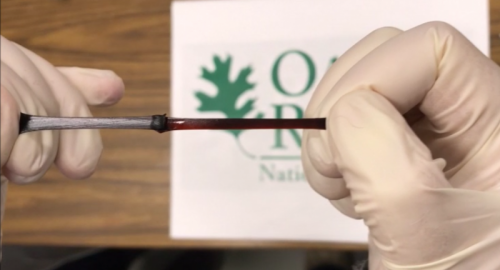Scientists at Oak Ridge National Laboratory (ORNL) have developed a new, stretchy, plant-derived material that outperforms the adhesiveness of the natural chemical that gives mussels the ability to stick to rocks and ships.
This bio-based material—composed of lignin (the substance that gives plants sturdiness) and epoxy—can self-heal and elongate up to 2,000%. Converting lignin into well- defined compounds is often challenged by structural complexation and inorganic contamination induced by the pulping process.
To achieve these results, researchers developed a unique method to extract a specific form of lignin. Instead of breaking down lignin into small molecules, we extracted a uniform and rigid oligomer from the lignin waste stream. The multifunctional polyphenol oligomer containing carboxylic acid, alcohol, and phenol groups is highly reactive and brings stiffness into the material matrix.

The resulting molecular structure creates a super-sticky, Tough, super-sticky elastomers are economically prepared from this oligomer by a reaction with epoxy-terminated polyethylene glycol, without needing any solvent. The highly elastic material can heal quickly, where broken, through hydrogen bonding
This extracted lignin shows promise for a range of industrial applications including coatings, glues, and hydrogels. The results, published in ACS Macro Letters, demonstrate new potential for a small, but high-value portion of the lignin waste stream from biorefineries and the pulp and paper industry.
Source
Bioplastics MAGAZINE, 2019-05-21.
Supplier
Share
Renewable Carbon News – Daily Newsletter
Subscribe to our daily email newsletter – the world's leading newsletter on renewable materials and chemicals










